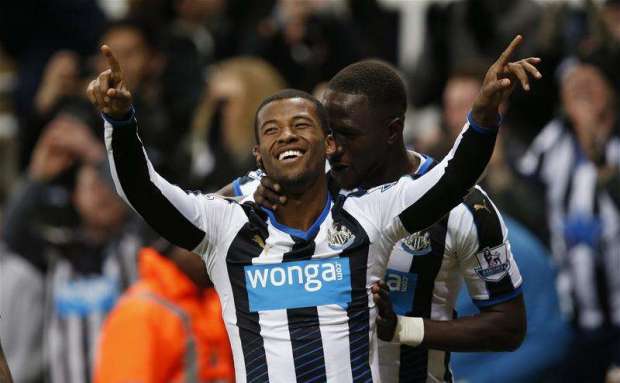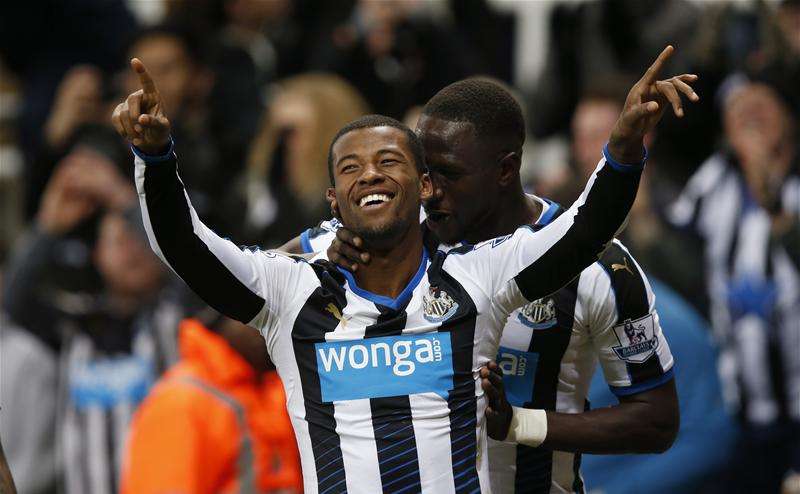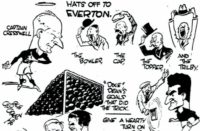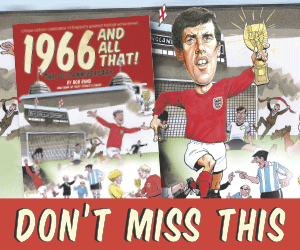
By Billy Crawford
Why do we end up supporting the football clubs we do? For some of us it’s a family tradition handed down from our parents and grandparents, for some it’s the first time as young children we see a team play live or on the TV and are captivated by the players, the kit or the noise from the fans.
For others it’s something acquired in later life, perhaps learnt from our friends. Thinking about this made me wonder – if it was just about the team, the manager, the players, the owner, how many of us would still support the clubs we do?
Eric Cantona famously said: “You can change your wife, change your politics, change your religion, but you can never, never change your favourite football team.”
Why is this though, and in a world where clubs pay less and less attention to the thoughts and feelings of their fans, is this quote still true today?
Do older Leeds United fans, fed up with the crisis and botched ownerships of the last 15 years, still feel a connection between the club they see today and the club of Billy Bremner and Don Revie?
How do Cardiff City fans feel under the dictatorship of Vincent Tan, who has changed the club colours and badge backwards and forwards in recent years? Increasingly, fans are feeling more and more detached from their clubs.
The huge rise in player salaries and transfer fees, coupled with ever more expensive match tickets for fans, has helped with this alienation. Ever since the days of George Best and Charlie George, we have known that footballers lived nicer lives than us but the contrast has never been as sharp as in recent years.
How can a young man or woman struggling to pay rent on the minimum wage in Liverpool possibly relate to a 20-year-old who has yet to prove himself in the game turning down a £100,000-a-week salary? The figures alone in football these days are eye-watering. Manchester City recently paid £30m in transfer fees and £200,000-a-week in wages for Wilfred Bony, a player they seem content to use only off the bench.
Match tickets at London clubs like Arsenal can be anything from £60-£120, making it impossible for many fans to afford to go to football. All of this makes me wonder if our loyalty to our clubs should remain unquestioning. If supporting a football team is like falling in love then isn’t it possible to fall out of love?
This got me thinking about my own experiences as a football fan and whether other fans felt the same so I decided to find out.
As a child from a family without a football team to pass down to me, I looked around for a club to support. Growing up in West London in the 1990s, I naturally became a Chelsea fan. They were my local team and I was captivated by the skills of Zola, Di Matteo and company. When Roman Abramovich took over the club in 2003, I was a wide-eyed 15-year-old enthralled by the names being thrown about as potential signings. Henry, Rooney and Ronaldinho were all mentioned at some stage.
It seemed like my club could conquer the world and I wanted to be a part of it. I supported the club unquestioningly through the controversies of Jose Mourinho’s first season, celebrating the title win at Bolton and raging at Luis Garcia’s “ghost goal” for Liverpool in equal measure. Towards the end of his second season, I did begin to tire of Mourinho’s histrionics, the moment when he threw his medal away after winning the league being particularly difficult to watch, but they were my club and I would stick with them.
It was only as I got older and began to be able to afford to go to games more regularly that I really began to question what I was spending my time and money on.
Going to matches, I felt more like a corporate customer than a fan. The atmosphere was nothing like I had imagined watching games on TV. During one FA Cup tie, the couples behind me spent the entire game discussing their holidays, and the sky high ticket prices and lack of real working class fans all contributed to this.
Most players did not seem to have much connection with the fans, with the exception of those who had been there most of their careers, and many appeared to be simply highly paid mercenaries.
I started to wonder if my experiences were shared by fans of other clubs, so I began to research this. I spoke to fans of many clubs, some shared my disillusionment, some did not.
Many West Ham fans I spoke to felt something had gone missing from the atmosphere at Upton Park in recent years, blaming high ticket prices, the end of the terraces and heavy-handed stewarding.
Many Arsenal fans felt a disillusionment at the corporate feel of the Emirates. Some Man City fans felt more connection to the teams of Kinkladze and Goater in the 90s that would regularly get relegated, to the title-winning multi-millionaires of today.
I finally fell out of love with Chelsea when I realised that buying kits each season and watching the team play had become a ritual with no emotion or feeling attached to it at all.
It was around this time that I had been watching Newcastle United play a lot, as most of my friends were Newcastle fans. Something about the club captivated me in a way Chelsea never had. The passion of the fans roaring down from the stands, the last minute comebacks and tales of past glories made me feel like I had found the club with a beating heart that I had always been looking for.
I felt more emotion and passion watching Cheik Tiote’s famous last minute piledriver to draw 4-4 against Arsenal or Kevin Nolan’s hat- trick in the 5-1 derby win against Sunderland than I ever had watching all the trophies that Chelsea had won over the years.
When Newcastle lost it hurt more, too. Chelsea winning or losing had never really affected my day in the way this did. A big win on a Saturday and I would still be in a good mood Monday morning at work. A big defeat, especially in the derby, and I would not be the best company.
Even in recent seasons, when Mike Ashley seems to have tried his hardest to suck the life and spirit out of the club, there is something that keeps us going, keeps us wearing the black and white, watching matches and having that passion for our club that no one can take away. It is not something that can be put into words, but speaking to other fans I know they feel the same.
Bournemouth fans I have spoken to felt the same passion for their club when they were passing around collection buckets to keep the team afloat as they did in recent weeks celebrating promotion to the Premier League.
Portsmouth fans have experienced the most contrasting highs and lows imaginable in recent seasons but Fratton Park is still alive with the Pompey Chimes.
Whatever happens to Newcastle over the next few seasons, whether it’s a return to past glories in the Premier League or life in the Championship or lower, many thousands of us will continue to wear the black and white stripes with pride.
Some may feel they have lost connection to their club and go elsewhere like I did at Stamford Bridge. Indeed, crowds have rocketed at non-league Gateshead since the Ashely regime has tightened its grip on St James’ Park.
In the end, it all comes down to where you feel a connection, where you feel at home. Dennis Bergkamp put it best: “When you start supporting a football club, you don’t support it because of the trophies, a player, or history, you support it because you found yourself somewhere there, found a place you belong.”
I guess what I’ve learnt most through all of this is if you find that place you belong, hold on to it because it’s precious. And if you haven’t? Don’t become someone’s corporate customer out of a misplaced sense of loyalty. In today’s football world it simply isn’t worth it.


















